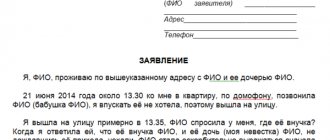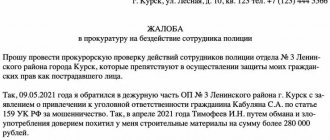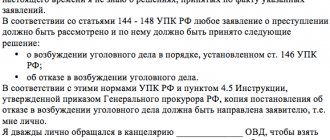The activities of the Russian police are regulated by the legislation of the Russian Federation, in particular Federal Law N-FZ “On the Police”. This legislation was amended and came into force on December 30, 2021. Now federal legislation fully regulates any activity of police officers, as well as their rights and responsibilities.
Federal Law of 02/07/2011 No. 3-FZ “On Police”
Questions and answers
The actions of employees working in the Ministry of Internal Affairs, first of all, must always be reasoned and fully comply with the laws. There are many cases in which the actions of a police officer may violate the rights of a citizen. To eliminate such moments, it is worth considering the most common questions.
Does a police officer have the right to check documents on the street?
Document verification can be carried out if there are grounds, which could be a simple search for persons evading administrative punishment. For this reason, the procedure can be carried out even on the street on any person. Document verification means viewing an identity card.
There is an important point: any employee of the authorities must introduce himself and present his official identification. This must be done regardless of whether the police officer is in uniform or in plain clothes.
Can a law enforcement officer take away a passport?
First of all, you should remember that only an employee of the police department or the investigation department can pick up the documents. In other cases, there is no need to give away personal documents. A passport is taken only if a person is suspected of committing a crime and there is information about it. In all other cases, such an action is illegal.
Do the police have the right to search on the street?
A police officer may search the street if there are appropriate reasons, for example, the presence of prohibited items is suspected or the person resembles a person. But there are several nuances. The Ministry of Internal Affairs employee must introduce himself in full and explain the reason for the procedure. A search on the street must take place under protocol and in the presence of witnesses. This procedure should not be confused with a search, during which a person may be asked to unbutton his jacket or open his bag. This type of search is standard procedure and is completely legal.
Do the police have the right to stop people on the street without reason?
Without a reason, detention on the street or in another public place is impossible in principle. The only possible event is a detention at the scene of a crime in which a citizen is suspected. In this case, the citizen is detained and escorted to the nearest department of the Ministry of Internal Affairs to give evidence.
Do the police have the right to question a minor without their parents?
It is required to interrogate, that is, obtain testimony on record, a minor offender or a witness under 16 years of age only in the presence of parents or legal representatives. Without them, interrogation is not legal, unless there is a corresponding court order that will authorize this procedure.
Do the police have the right to stop a car?
In accordance with the law, any police officer has the right to stop a car. This can be done when stopping a violation or checking documents. To receive a fine, the policeman already accompanies the citizen to the traffic police post or department.
Does a police officer have the right to check documents for a car?
The policeman has the right to check documents for both the car and the cargo. The only difference from the actions of a traffic police inspector is that if there are violations, you will have to call the traffic police.
Do the police have the right to enter the apartment?
There are several established cases in which an employee of the Ministry of Internal Affairs can enter. For example, such action requires special circumstances, such as danger to persons living there or the arrest of a criminal, as well as the existence of a court order. But there are nuances. The employee must introduce himself in full, show identification and explain the reason for the visit. If he did not do this, then there is no need to let him in, even if he is a local police officer who is known to the residents.
Does a police officer have the right to film with a phone?
Photography is permitted at any event. It can be done either on a phone or on a camera. In the future, such materials are added to the case, in particular as evidence of refusal to comply with legal requirements or inadequate condition. Civilians also have the right to film, but only if this does not interfere with the conduct of operational-type activities and the employees themselves doing official work.
Does a police officer have the right to check a phone?
Checking the phone is possible only during operational activities and is mandatory according to the protocol, which implies the presence of witnesses. It’s just that an employee does not have the opportunity to pick up a telephone device and view it.
Article 27. Basic duties of a police officer
1. A police officer is obliged:
1) know and comply with the Constitution of the Russian Federation, legislative and other regulatory legal acts in the field of internal affairs, and ensure their implementation; undergo regular checks of knowledge of the Constitution of the Russian Federation, legislative and other regulatory legal acts in this area, in the manner determined by the federal executive body in the field of internal affairs;
2) perform official duties in accordance with job regulations (job description);
3) carry out orders and instructions from managers (supervisors) given in the prescribed manner and not contrary to federal law;
4) address official matters to your immediate superior, and, if necessary, to your direct superior, notifying your immediate superior;
5) observe the rights and legitimate interests of citizens, public associations and organizations when performing official duties;
6) comply with the internal regulations of the territorial body, the regulations of the organization included in the system of the federal executive body in the field of internal affairs where he serves;
7) maintain the level of qualifications necessary for the proper performance of official duties;
 not to disclose information constituting state or other secrets protected by law, as well as information that has become known to him in connection with the performance of official duties, including information relating to the private life and health of citizens or affecting their honor and dignity;
not to disclose information constituting state or other secrets protected by law, as well as information that has become known to him in connection with the performance of official duties, including information relating to the private life and health of citizens or affecting their honor and dignity;
9) protect state property, including those provided to him for the performance of official duties;
10) submit, in the manner established by the legislation of the Russian Federation, information about your income, property and property-related obligations, as well as information about the income, property and property-related obligations of your spouse and minor children;
11) inform in writing to the immediate superior about the termination of citizenship of the Russian Federation or the acquisition of citizenship (nationality) of a foreign state or the receipt of a residence permit or other document confirming the right to permanent residence of a citizen of the Russian Federation in the territory of a foreign state, on the day when the police officer became is aware of this, but no later than five working days from the date of termination of citizenship of the Russian Federation or acquisition of citizenship (nationality) of a foreign state or receipt of a residence permit or other document confirming the right to permanent residence of a citizen of the Russian Federation in the territory of a foreign state;
12) comply with the restrictions and prohibitions established by federal laws related to service in the police, as well as comply with the requirements for the official conduct of a police officer;
13) inform your immediate superior about the emergence of personal interest, which may lead to a conflict of interest in the performance of official duties, and take measures to prevent such a conflict;
14) notify in the manner established by the legislation of the Russian Federation on combating corruption of each case of any person contacting him for the purpose of inducing him to commit a corruption offense.
2. A police officer, regardless of the position he fills, location and time of day, is obliged to:
1) provide first aid to citizens affected by crimes, administrative offenses and accidents, as well as citizens who are in a helpless state or in a state dangerous to their life and health;
2) if a citizen applies to him with a statement about a crime, an administrative offense, an incident, or if a crime, an administrative offense, an incident is detected, take measures to save the citizen, prevent and (or) suppress a crime, an administrative offense, detain persons suspected in their commission, to protect the scene of a crime, an administrative offense, the scene of an incident and report this to the nearest territorial authority or police unit.
Features of the policeman's profession
Education begins from childhood, and the formation in the child’s mind of such an important figure as a person who monitors order and the correct execution of all processes is a very significant factor in the little person’s assessment of everything that happens in the world.
Children need to be taught that the main thing is order, which should be everywhere: in the house, on the street, at school, etc. The task of establishing order should be carried out by specially trained people - police officers. They must prevent crimes from being committed and avoid hooliganism. They are also obliged to help all those who are in trouble and those who need help.
Professional skills and abilities
When joining the service, a police officer must have a set of skills and abilities, among which are the following:
- high physical fitness, coordination, strength, speed, endurance;
- resistance to high psychological stress;
- speed of decision-making in the current situation;
- emotional stability.
Personal qualities of a police officer
The position of a police officer requires certain qualities:
- speed of thinking;
- development of logic;
- literacy;
- multitasking;
- concentration;
- good memory;
- high observation ability.
Career
The career of an employee of the Ministry of Internal Affairs (Ministry of Internal Affairs) is very complex and multi-stage, and depends mainly on personal connections, experience, public opinion and other factors, and often on the abilities of the person himself.
Places of work
The places of work of police officers may be the following:
- duty units;
- district and regional police departments;
- traffic police;
- temporary detention facilities;
- prisons;
- legal authorities;
- courts.
Earnings
The minimum salary for patrol police in Russia is $280. At the same time, department employees can receive a maximum of $1,500 per month . However, the situation is not the same in all cities of the country. Moscow remains the city with the highest police salary, which is due to the higher standard of living in the capital as a whole. A police officer's salary there is $1,857 . In the cultural capital of the Russian Federation, the city of St. Petersburg, the salary level of an employee of the Ministry of Internal Affairs has not changed for a long time and remains at around $1,300 per month .
History of the profession
All over the world you can meet people whose representatives are called police officers. Only during the time of the Union of Soviet Socialist Republics (USSR), and also until recently in Russia and Ukraine, this profession was called “policeman”.
As soon as any formation of a community of people occurs, the need immediately arises for those who will monitor the observance of law and order. At the beginning of the twentieth century, this was monitored by “gendarmes” and “royal police”, they were controlled by the revolutionary command, and only at the beginning of November 1917 the term “militia” was introduced , symbolizing the people's militia, which was properly armed, and was perceived by the common people as something very close to it.
At first these were ordinary volunteer detachments, which consisted of peasants and workers, but by the end of 1918 it was decided to form a state body from these squads.
Professional holiday
Police Day is celebrated differently in different countries. For example, in Russia it is celebrated on November 10 , and in Ukraine it is celebrated on August 4 .





